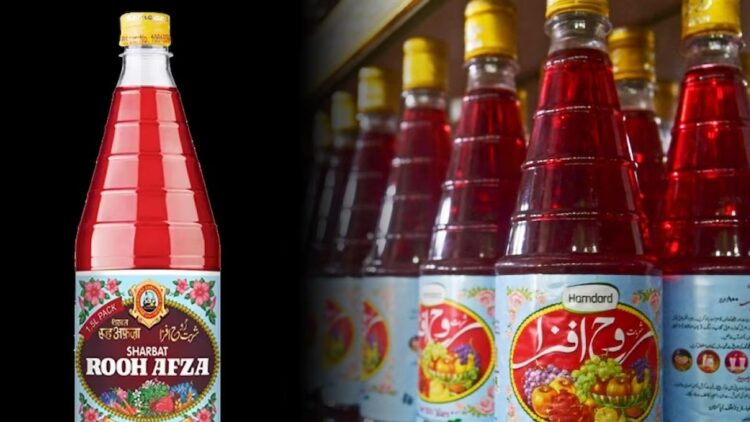Hamdard Laboratories, renowned for its iconic beverage ‘Rooh Afza,’ finds itself embroiled in controversy as accusations of deceiving millions of consumers across Bangladesh, India, Pakistan, and the Middle East surface. The allegations, reportedly confirmed by the Dhaka South City Corporation (DSCC), raise concerns about false advertising and potential health risks associated with the beverage, which holds a halal certification and enjoys popularity among a significant portion of the Indian populace.
The brand’s marketing campaigns tout Rooh Afza as a “nutritional drink” capable of regulating body hydration levels, boasting a formulation comprising 13 herbal ingredients, 36 varieties of fresh fruit juices, and extracts from fresh flowers. However, according to DSCC officials, investigations reveal that several ingredients listed in the drink’s composition are nonexistent. Health experts also caution that consumption of Rooh Afza could pose severe health risks, particularly for individuals with diabetes.
The damning revelations stem from a comprehensive market analysis conducted by the DSCC. Additionally, WeeklyBlitz reports that Dr. Hakim Muhammad Yusuf Harun Bhuiyan, the managing director of Hamdard, issued a formal apology for the deceptive marketing tactics employed by the company.
Furthermore, allegations of attempted bribery by Hamdard Laboratories (Wakf) Bangladesh to silence regulatory scrutiny have surfaced. Following these allegations, the Dhaka South City Corporation lodged complaints with both the Anti-Corruption Commission (ACC) and the Food Directorate on 20th February.
A report published by Bangladeshi website Kalbela asserts that samples of Rooh Afza were procured from the market by the civic body and subjected to laboratory testing. It is revealed that in 2018, the Dhaka City Corporation had filed a case against Hamdard after evidence of fraudulent practices surfaced. While initially pleading guilty and paying a fine of Rs 4 lakh, the managing director of Hamdard later appealed the verdict, resulting in the court ordering a refund of the fine. Subsequently, the city corporation petitioned the Safe Food Authority to challenge the ruling.
In an attempt to thwart the city corporation’s appeal, Hamdard allegedly resorted to bribery, as claimed by Kalbela. A purported video obtained by the publication allegedly depicts Ali Ahmed, Assistant Director (Administration) at Hamdard, coercing City Corporation’s Safe Food Inspector Mohammad Kamrul Hasan to withdraw the appeal by offering financial inducements.
In response to these revelations, Kamrul Hasan decried Hamdard’s actions as unethical, emphasising the contradiction in pleading guilty in one court while contesting the verdict in another.
Seeking swift retribution, the CEO of Dhaka South City Corporation has implored the Anti-Corruption Commission to take decisive action against Hamdard Laboratories, underscoring the gravity of the situation and the need for accountability in ensuring consumer safety and regulatory compliance.




















Comments